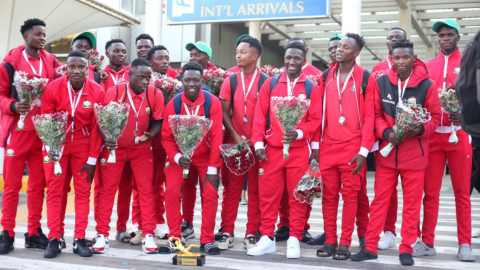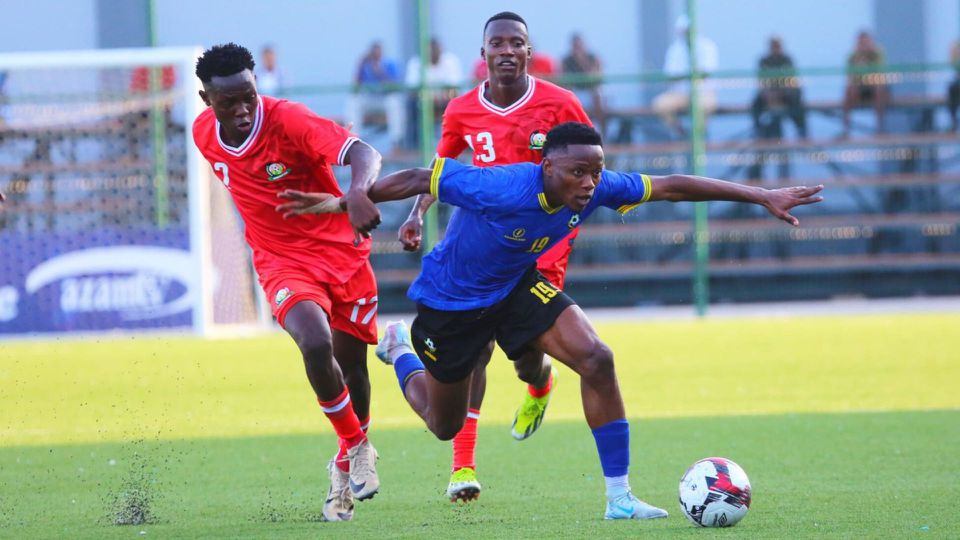The five African footballers who achieved world-class success by excelling in their home continent without ever playing in Europe.
African footballers have long been celebrated for their immense talent, resilience and passion for the beautiful game.
For many, the ultimate mark of success is making it to the European football leagues, where world-class training facilities, larger audiences and lucrative contracts beckon.
However, not all African football stars have followed that path as some players have achieved remarkable success while remaining loyal to their home continent. These footballers have proven that it is possible to reach world-class status without stepping foot in Europe’s elite leagues.
Homegrown African football legends who proved you don’t need Europe to succeed
1. Wael Gomaa (Egypt)
At the pinnacle of African football’s homegrown success stories stands Wael Gomaa, a stalwart of Egyptian football and a player whose loyalty to the continent and his club was as strong as his prowess on the field.

Born in Mahalla, Egypt, in 1975, Gomaa is widely regarded as Africa’s most decorated player, boasting an astonishing 28 major honors over a two-decade-long career.
Gomaa spent the majority of his career with Egyptian giants Al Ahly, a club synonymous with African football success. His impressive trophy haul includes eight Egyptian Premier League titles, six CAF Champions League titles, and three Africa Cup of Nations (AFCON) victories with the Egyptian national team. Such achievements made him a towering figure not just in Egyptian football but across the entire continent.
Gomaa was a dominant presence at center-back as his defensive skills drew comparisons to Europe’s best, and he even had a trial with Blackburn Rovers in the English Premier League, but nothing materialized.
Despite never playing in Europe, Gomaa’s status as a world-class defender is unquestionable. He earned 117 caps for Egypt and was crucial to the team’s success during the mid-2000s, when the Pharaohs reigned supreme in African football.
His steadfast commitment to Al Ahly and Egyptian football has made him a beloved figure in the region proving that a player does not need to leave the continent to become a legend.
2. Segun Odegbami (Nigeria)
In Nigeria, Segun Odegbami, fondly known as “Mathematical,” stands tall as one of the country’s greatest footballers.
Born in Lagos in 1952, Odegbami had an extraordinary career in his home country, earning admiration for his intelligent style of play and clinical finishing in front of goal. His moniker, “Mathematical,” is a nod to his background in engineering, a degree he obtained from Polytechnic University.

Odegbami’s impact on Nigerian football is profound, particularly for his role in the national team’s triumph at the 1980 Africa Cup of Nations, where he was the key player in Nigeria’s maiden AFCON victory.
A prolific forward, Odegbami was capped 47 times by the Super Eagles and scored 23 goals during his international career, making him one of Nigeria’s most effective strikers.
Like Gomaa, Odegbami never played in Europe, choosing instead to spend his entire career in Nigeria. His skillset—precision, intelligence, and technical prowess—earned him widespread recognition, and he remains a legendary figure in Nigerian football.
3. Godfrey Chitalu (Zambia)
Zambia’s Godfrey Chitalu was a force to be reckoned with on the pitch, and his name has become synonymous with goal-scoring prowess.
Chitalu’s career, which spanned the 1960s and 1970s, is one of the greatest in African football history. Despite his untimely death in 1993, Chitalu’s legacy continues to loom large over Zambian football.

Chitalu, affectionately known as “Ucar,” was Zambia’s most prolific goal scorer, with 79 goals in international competition. His goal-scoring feats gained international attention when former Barcelona striker Lionel Messi was poised to break the record for most goals scored in a calendar year in 2012.
Zambian football authorities quickly pointed out that Chitalu had netted 116 goals in 1972, a figure that FIFA refused to acknowledge as many of those goals were scored in domestic competitions.
Regardless of FIFA’s stance, Chitalu’s record is monumental as his ability to find the back of the net at will made him one of Africa’s most feared forwards.
Chitalu spent his entire playing career in Zambia, achieving legendary status with local clubs Kabwe Warriors and Kitwe United. In addition to his exploits on the field, Chitalu went on to coach the Zambian national team, though tragically, he was aboard the plane that crashed in 1993, killing the entire squad.
Chitalu’s achievements demonstrate that a player’s greatness is not limited by geography. He remains one of Africa’s all-time greats, his career standing as proof that even in an era before widespread media coverage, African footballers could become world-class legends without European exposure.
4. Denis Onyango (Uganda)
For over a decade, Denis Onyango has been a colossus in goal for both club and country. Born in Kampala, Uganda, in 1985, Onyango has carved out a stellar career in African football, particularly in South Africa, where he became one of the continent’s best goalkeepers.

Onyango started his career in Uganda, playing for Villa SC before moving to Ethiopia’s Saint George SA. However, it was in South Africa, with Mamelodi Sundowns, that Onyango’s talent truly flourished.
With Sundowns, he won multiple South African Premier Soccer League titles and was a key part of the team’s historic CAF Champions League victory in 2016.
His heroics in goal earned him the title of Africa’s best home-based player and recognition from the International Federation of Football History & Statistics, which named him one of the world’s top ten goalkeepers in 2016.
Despite his success, Onyango never made the leap to European football, preferring to stay in Africa, where he continues to excel.
His leadership and consistency have been instrumental in Uganda’s resurgence on the international stage, particularly in their qualification for the 2017 Africa Cup of Nations, their first in nearly 40 years.
Onyango’s story is a testament to the fact that playing in Africa can lead to global recognition, with his €1 million market valuation reflecting his immense value.
5. Lakhdar Belloumi (Algeria)
In the annals of Algerian football history few names command as much respect as Lakhdar Belloumi. Born in Mascara, Algeria, in 1958, Belloumi is considered one of the most gifted attacking midfielders Africa has ever produced.

His creativity, vision, and technical ability made him a standout player for both club and country, and his legendary status was solidified during Algeria’s golden period in the 1980s.
Belloumi was most famous for his role in Algeria’s stunning 2-1 victory over West Germany at the 1982 World Cup, where he scored the winning goal in one of the tournament’s most memorable upsets.
Throughout his career, Belloumi remained in Algeria, playing for local clubs and resisting the lure of European football. He is also credited with inventing the “blind pass,” a technique later popularized by some of the world’s best players, including Zinedine Zidane and Ronaldinho.
Despite not leaving Africa, Belloumi scored 34 goals in 100 appearances for the Algerian national team and remains a beloved figure in his country.
His legacy has inspired generations of Algerian players, including current star Riyad Mahrez who looks to Belloumi as a role model.











